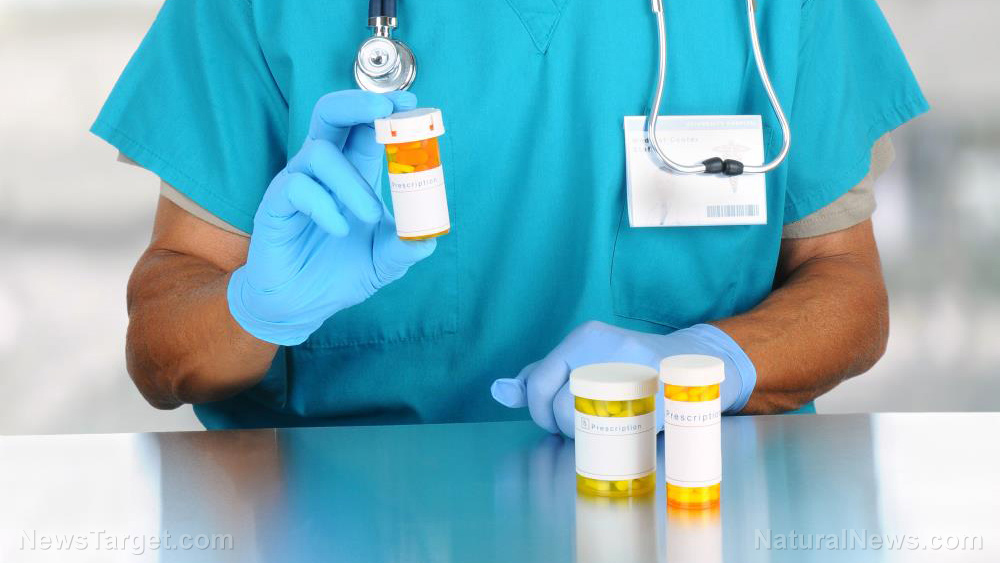
Data from the University of Utah Drug Information Service has revealed that active national drug shortages have hit an alarming 10-year high in 2023, leaving many hospitals, healthcare providers and pharmacies without enough life-saving and supportive medications.
According to an American Society of Health-System Pharmacists (ASHP) survey, 99 percent of the 1,123 pharmacists who responded have reported shortages. The majority of the survey takers work in hospitals.
Data also showed that at least one-third of the pharmacists listed the shortages as "critically impactful," which is defined as "being forced to ration medication" or delay or sometimes cancel medical treatments.
Meanwhile, the U.S. Food and Drug Administration (USDA) lists 124 medications in short supply as of Dec. 21. Earlier in 2023, the list topped out at 309. (Related: Survey: 96% of pharmacy techs report drug shortages while 45% of patients leave pharmacies without the prescriptions they want.)
The shortage applied to several categories, including antibiotics (such as amoxicillin and azithromycin), staple analgesics like ketamine, and nitroglycerin injections that are crucial for controlling congestive heart failure in heart attack patients.
Securing medication is also a problem for people managing chronic illnesses.
However, medication scarcity isn’t a new problem as drug shortages have plagued the country for at least 20 years.
The findings of a 2011 study revealed that increasingly frequent drug shortages were already a problem for the past decade.
The shortages were linked to common problems plaguing the industry today:
- Challenges in acquiring raw materials
- Manufacturing and regulatory problems
- Disturbances in the supply chain
America shouldn't rely on China for life-saving drugs
The heavy reliance on other countries to manufacture pharmaceuticals, is also another problem, with some U.S. lawmakers warning that this leaves the country too dependent on foreign drug manufacturing.
In a September statement introducing his American Drugs Act, Florida Senator Rick Scott said at least 90 percent of drugs dispensed at U.S. pharmacies are generic drugs that mostly come from China and India.
The American Drugs Act would help create "a strong incentive for companies to invest in domestic pharmaceutical production."
"Americans can't trust communist China and can't allow any reliance on Xi's evil regime for life-saving medicine," warned Scott. The U.S. currently relies on other countries to manufacture key starting materials (KSM) and active pharmaceutical ingredients (API), both of which are the critical building blocks of pharmaceuticals.
A report issued by the European Parliament found that as of 2021, China became the world’s leading supplier of both KSMs and APIs.
Last March, a U.S. congressional strategic preparedness committee said that up to 95 percent of generic sterile injectable drugs used for critical acute care in America rely on KSMs from China and India.
The reliance on foreign production of U.S. pharmaceuticals is an issue that former President Donald Trump identified and attempted to address during his term. Together with the America First Healthcare Plan, Trump’s $354 million deal in 2020 with U.S.-based Phlow Corp. was an effort to increase domestic manufacturing of generic drugs and APIs.
But more than three years later, in September, Phlow announced that it was manufacturing APIs for the "federal government, to be stored in the nation’s first reserve of APIs."
In a statement, Phlow CEO and co-founder Eric Edwards explained that this can help "ensure the resiliency and availability of critical medicines" even amid times of geopolitical crises, natural disasters, trade disputes, or future public health emergencies.
Edwards added that Phlow is also making KSMs and "rebuilding a resilient domestic supply chain."
Biden administration trying to address drug shortages
The Biden administration has also responded to the outcry over drug shortages.
For example, a November White House announcement revealed that the Defense Production Act (DPA) will be used to encourage investment in the domestic manufacturing of "essential medicines, medical countermeasures, and critical inputs that have been deemed by the president as essential to the national defense."
The DPA grants a sitting president extensive authority to manage vital economic resources, along with the power to expand domestic production.
One strategy to achieve this includes expanding the Department of Health and Human Services (HHS) under Title III of the DPA. Some of these changes include $35 million for investments in the domestic production of KSMs for sterile injectable medications.
The HHS will also designate a new supply chain resilience and shortage coordinator to help resolve medication and other supply chain shortages.
However, those in the trenches of health care have criticized that these efforts are not enough to what’s needed. Experts have also warned that barriers to increased U.S. drug manufacturing will be hard to overcome at either a legislative or a logistical level.
Dr. Jared Ross, the president of Emergency Medical Services, Education & Consulting LLC, and a medical director at the Henry Ford College paramedic program, explained that foreign API production isn’t the original cause of the shortages.
Ross added that the larger issue is with KSM used to make the APIs. He also said KSM manufacturing must be brought back to the United States.
Practicing clinician Chris McDermott, founder of Intercoastal Consulting & Life Care Planning, explained that the reluctance of drug manufacturers to shift production domestically is not only because of legislation. He noted that one commonly overlooked aspect is the complexity of retooling existing facilities.
Ramping up manufacturing in the U.S. is only possible with "significant investment and time," said McDermott. However, this could disrupt current production models for some manufacturers.
Visit PrescriptionDrugs.news for more stories about drug shortages.
Watch the video below to learn more about the issues plaguing the global supply chain.
This video is from the ADAPT 2030 | Solar Minimum channel on Brighteon.com.
More related stories:
Adderall shortage in America driving ADHD patients to use METH.
Drug shortages reported at 96% of U.S. pharmacies as Big Pharma’s supply chain begins to fail.
Israel Home Front Command’s advice leads to surge in PANIC BUYING of food and other supplies.
Sources include:
ASHP.org[PDF]
Please contact us for more information.






















